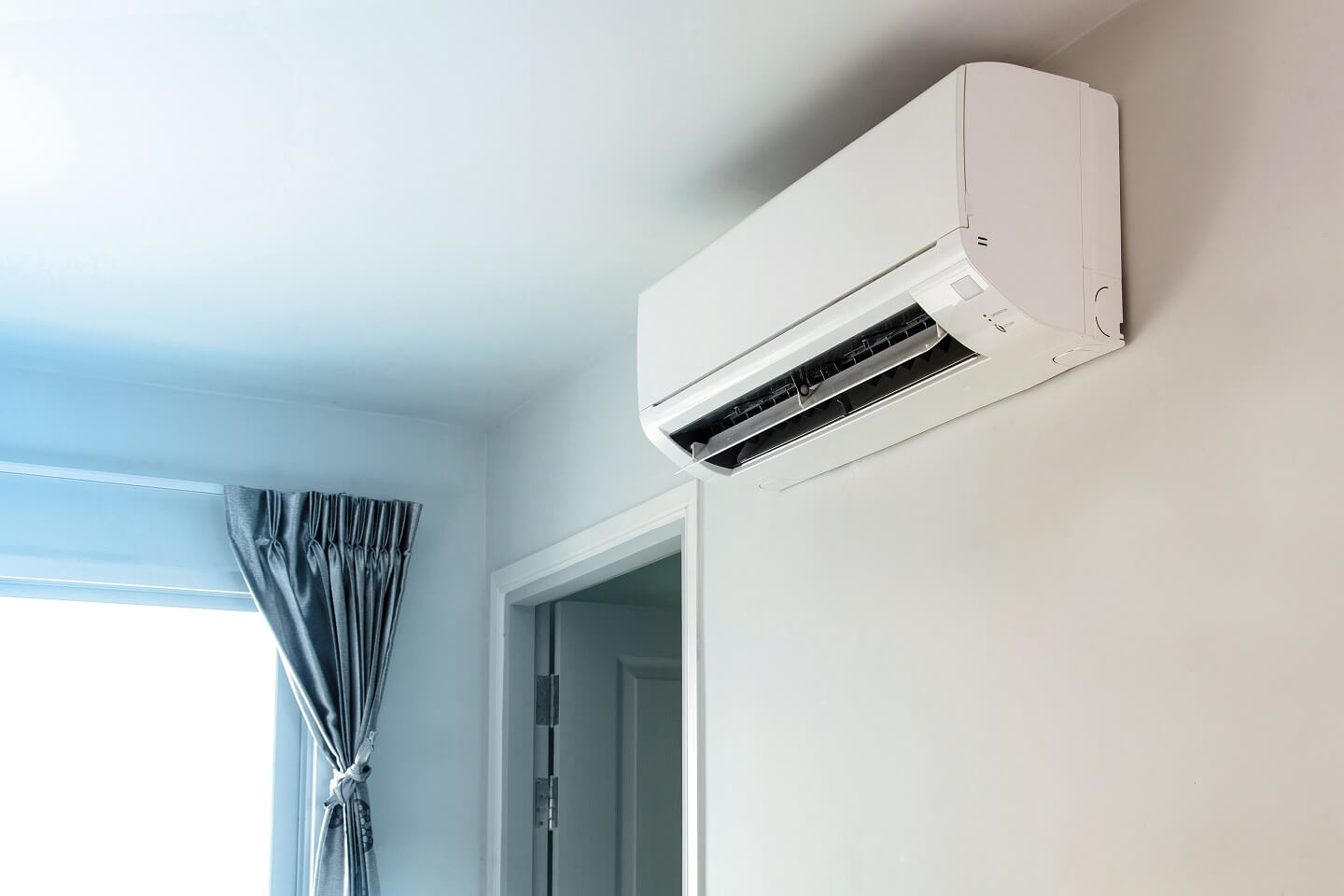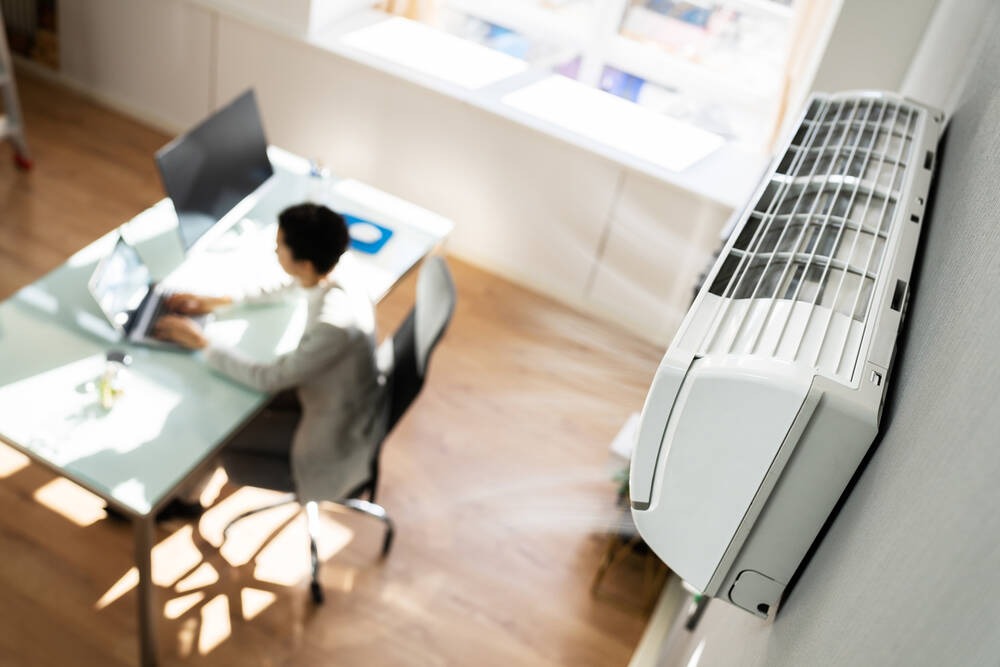This blog article talks about whether air conditioning adds value to a home in the UK. Learn the cost and benefits of installing air conditioning and tips on how to choose the right fit for your home. Credit: The Eco Experts Air conditioning can add value to a UK home, potentially increasing its sale price by a few thousand pounds. However, it is seen as more of a desirable luxury feature rather than a cost-effective investment. In our experts’ opinion, air conditioning is not likely to be a worthwhile investment for most UK homeowners purely in terms of increasing property value. While it can add appeal for buyers, the costs involved mean it should be carefully considered as more of a luxury than a home improvement that will pay for itself. Energy efficiency is an important factor to weigh up. For those willing to make the upfront investment in a quality system, air conditioning can be a nice feature to have, but should not be expected to significantly boost a home’s value. Installing air conditioning can certainly increase the value of a property in the UK. However, it’s important to weigh the costs versus the potential added value. According to property experts, high-quality central air conditioning could add around £6,000 to the value of a typical UK home. For a £300,000 property, this works out to about 2% of the total value. The installation costs for a central AC system though can easily exceed £5,000. Here are some key things to consider: Overall, air conditioning is seen more as a luxury and comfort feature rather than an investment that will pay for itself in increased property value. The value added may not offset the installation costs. But for some homeowners, having cool, comfortable air during hot UK summers is worthwhile regardless of the costs. Credit: The Page The cost of installing air conditioning in your home will depend on the type of system you choose and the size of the area being cooled. Here are some typical price ranges: With any installed system, you’ll also need to factor in ongoing energy and maintenance costs. Portable ACs tend to be the most affordable option for cooling a small area. But they’re less energy efficient than fixed systems. Ducted central air provides whole home climate control, but the upfront cost is significant. When getting quotes, look for certified installers rather than general handymen. Ask about energy efficiency ratings and projected running costs. And make sure the system is properly sized for the areas you want to cool – undersized units won’t be effective. While air conditioning installation can be expensive, alternatives like evaporative coolers, ventilation systems, outdoor shading, and insulation upgrades can also help beat the heat. Get multiple quotes and consider both upfront costs and long-term savings when choosing the right cooling option for your home. Installing air conditioning can make a big difference in UK homes during hot summer months. Here are some of the key benefits: Air conditioning makes it easier to cope with heatwaves. It allows you to better regulate temperatures room-by-room. And it provides an escape from the heat when needed. With summers in the UK getting warmer, having some form of AC is becoming increasingly desirable for many homeowners. There are also health benefits. Cooler indoor temperatures reduce cardiovascular strain and other heat-related risks. Air conditioning can literally be a lifesaver for vulnerable people during extreme heat events. While costs can add up, the investment in air conditioning delivers more comfortable summers. Be sure to work with qualified installers and choose energy-efficient systems to maximise the benefits. With hotter UK summers becoming the norm, more people are considering getting air conditioning installed in their homes. But is it really worth the upfront costs? There are a few factors to weigh when deciding if air conditioning is a smart investment: For maximum return, invest in a properly sized, energy-efficient system and use it judiciously. Focus on cooling only the spaces you occupy. Strategically placed window units can often suffice vs central air. While not essential, air conditioning can greatly improve home comfort during hot spells. If you can afford the upfront cost, it may be a worthwhile addition, especially as UK summers trend hotter. Get quotes from qualified installers to understand true costs. Pick energy-efficient units to save on electricity bills. And look for any available rebates on AC purchases and installations. With the right system and usage, you can make air conditioning a cool investment. Investing in an air conditioning system is a big decision. Follow these tips to ensure you select the right cooling solution for your home: Also, consider any smart features for controlling your AC remotely. And don’t forget regular maintenance to keep your system running cleanly and efficiently. Installing air conditioning is a complex process with lots of variables. Doing your homework will ensure the system you choose keeps you comfortably cool for years to come without sending energy bills through the roof. Installing air conditioning can potentially increase the value of a UK home by £2,000 to £6,000 on average, according to property experts. High-end systems may add even more value to luxury homes. However, the increase in value may not fully offset the installation costs. Air conditioning is still considered a luxury in the UK climate. Those prioritising energy efficiency and willing to make the upfront investment may find it worthwhile. Yes, air conditioning can add some value to a property in the UK housing market. It’s seen as an attractive feature for buyers and renters. However, the value increase may not be substantial enough to offset installation costs. Air conditioning units do consume a significant amount of electricity. Newer, more energy-efficient models have lower running costs. But air-con still results in higher energy bills, especially during hot weather. Carefully consider costs before installing. While air conditioning can increase a UK home’s value and appeal to buyers, the costs of installing and running an AC system are high. The value added may not fully offset these expenses. Homeowners should carefully weigh up the pros and cons when deciding if air conditioning is a sound investment for their property. Energy efficiency should be a key factor. Overall, air conditioning is considered more of a luxury than a cost-effective home improvement in the UK climate.
Does Air Conditioning Add Value to a Home in the UK?

Key Points
Our Opinion
Does Air Conditioning Increase Property Value in the UK?
How Much Does Installing Air Conditioning Cost in the UK?

What Are the Benefits of Air Conditioning for UK Homes?
Is Air Conditioning Worth the Investment in the UK?
5 Tips for Choosing the Right Air Conditioning System in the UK
FAQ
How much value does air conditioning add to a home in the UK?
Is it worth having air conditioning in the UK?
Does air conditioning add value to your property?
Do AC units use a lot of electricity in the UK?
Conclusion
